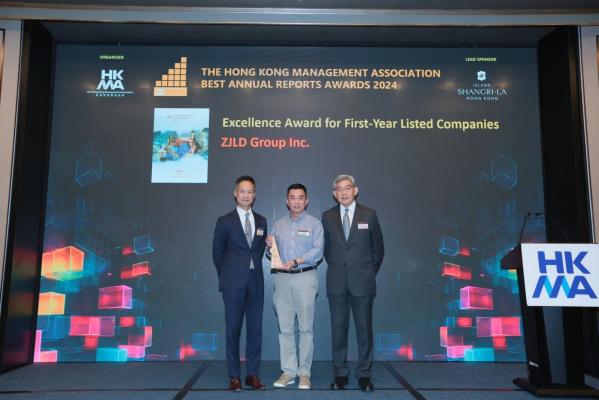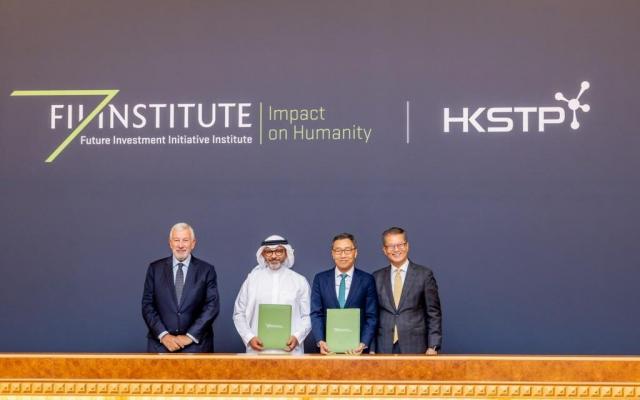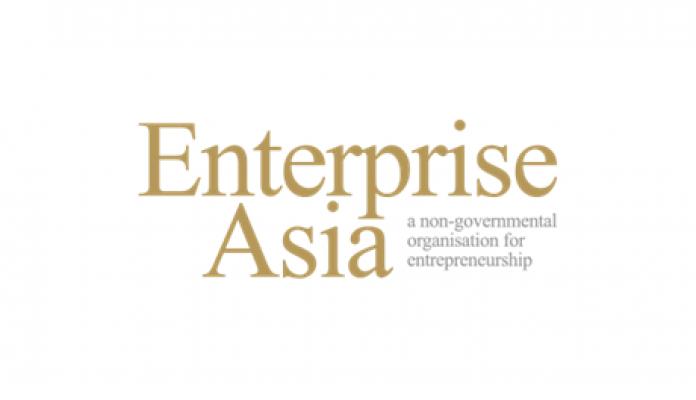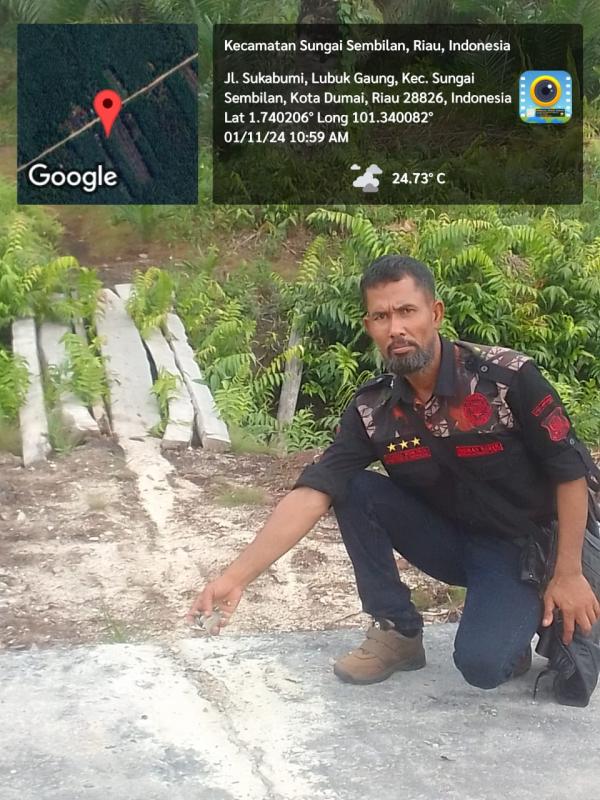- Home
- MediaOutReach
- Zayed Sustainability Prize Announces 2025 Finalists Pioneering Innovative Global Solutions
Zayed Sustainability Prize Announces 2025 Finalists Pioneering Innovative Global Solutions
Kamis, 07 November 2024 | 10:08

ABU DHABI, UAE -
Media OutReach Newswire
- 7 November 2024 - The Zayed Sustainability Prize, the UAE's
pioneering award for sustainability and humanitarianism, has announced
33 finalists for innovative solutions to global challenges from 5,980
submissions across 156 countries. These innovators leverage AI and
advanced tech to address carbon capture, sustainability, and essential
access to clean energy, water, food, and healthcare.
Winners will be announced at the Zayed Sustainability Prize Awards on January 14, 2025, during Abu Dhabi Sustainability Week. Finalists span six categories: Health, Food, Energy, Water, Climate Action, and Global High Schools, reflecting a 15% increase in entries from the previous year, including from SMEs, non-profit organisations, and high schools.
H.E. Dr. Sultan Ahmed Al Jaber, UAE Minister of Industry and Advanced Technology, Director General of the Zayed Sustainability Prize, and COP28 President, highlighted that the finalists demonstrate exceptional innovation and impact.
"This cycle, we received an unprecedented number of submissions, with notable participation from the Global South and youth. In fact, this year's submissions reflect the three megatrends shaping our future, namely the rise of the Global South, the pace of the energy transition and the growth of AI.
These changemakers are tackling urgent environmental challenges head-on, while simultaneously advancing economic progress through innovative solutions. By leveraging emerging technologies, such as AI, carbon capture and removal, tidal energy, precision agriculture, biomimicry, and climate analytics, they are addressing the needs of the moment while inspiring the next generation to innovate and drive sustainability in impactful ways."
Health finalists this year provide quality healthcare to underserved, remote communities.
The Health finalists are:
· Periwinkle Technologies (India): Portable AI-enabled cervical cancer screening with 30-second results.
· Rology (Egypt): 24/7 AI-assisted teleradiology for quick, accurate diagnoses.
· Telemedan (Chad): Solar-powered medical kiosks for affordable healthcare in remote areas.
Food finalists aim to empower small-scale producers, support sustainable food preservation, and convert arid land into productive farms.
The Food finalists are:
· ABALOBI (South Africa): Mobile app and marketplace for small-scale fishers to log catches and sell directly.
· Nafarm Foods (Nigeria): Hybrid solar food dryers to preserve food and reduce CO2 emissions.
· Xinjiang Shawan Oasis Institute (China): Solar-powered smart greenhouses transforming desert land into farms.
Energy finalists provide solutions to boost energy efficiency and expand access to clean energy and transportation.
The Energy finalists are:
· D-Olivette Global Enterprise (Nigeria): IoT and AI-driven smart waste management, boosting efficiency by 40%.
· Palki Motors Limited (Bangladesh): Low-cost electric cars with solar-powered battery swap stations.
· Turbulent (Belgium): Eco-friendly vortex hydropower turbines with 60% efficiency.
Water finalists focus on optimising water use and enhancing access to clean drinking water.
The Water finalists are:
· Elman Teknoloji Ltd (Türkiye): Sensor-based water optimization in irrigation, reducing labor costs by 80%.
· High Atlas Foundation (Morocco): Solar-powered water pumping for optimized groundwater extraction.
· SkyJuice Foundation Inc. (Australia): Affordable, easy-to-deploy water filters requiring no chemicals or external energy.
Climate Action finalists are advancing carbon capture, ecosystem restoration, and climate resilience.
The Climate Action finalists are:
· Distant Imagery (UAE): AI-powered drones for environmental monitoring, seed planting, and habitat restoration.
· Hyera Inc. (USA): Carbon capture technology converting waste into activated carbon to remove water pollutants.
· OpenMap Development Tanzania (Tanzania): Flood management solution integrating indigenous knowledge with geospatial data
The Global High Schools' finalists presented project-based, student-led sustainability solutions, with finalists divided into six regions. The regional finalists include:
The Americas:
Centro de Estudios Tecnológicos del Mar 07, Mexico
Institución Educativa San Nicolás de Tolentino, Colombia
Mulgrave School, Canada
Sub-Saharan Africa:
Mpesa Foundation Academy, Kenya
Sakafia Islamic Senior High School, Ghana
St Kizito High School Namugongo, Uganda
Middle East & North Africa:
Benlahrech Said High School, Algeria
Merryland International School Abu Dhabi, UAE
Obour STEM School, Egypt
Europe & Central Asia:
Baku Modern Educational Complex, Azerbaijan
Gebze Bahçeehr Science & Technology High School, Türkiye
Presidential School in Tashkent, Uzbekistan
South Asia:
Faafu Atoll Education Centre, Maldives
Girls Higher Secondary School Khaplu, Pakistan
Janamaitri Multiple Campus, Nepal
East Asia & the Pacific:
Beijing World Youth Academy, China
Te Pā o Rākaihautū, New Zealand
Votualevu College, Fiji
In the Health, Food, Energy, Water and Climate Action categories, each winner receives US $1 million. Each of the six winning Global High Schools receives up to US $150,000.
Winners will be announced at the Zayed Sustainability Prize Awards on January 14, 2025, during Abu Dhabi Sustainability Week. Finalists span six categories: Health, Food, Energy, Water, Climate Action, and Global High Schools, reflecting a 15% increase in entries from the previous year, including from SMEs, non-profit organisations, and high schools.
H.E. Dr. Sultan Ahmed Al Jaber, UAE Minister of Industry and Advanced Technology, Director General of the Zayed Sustainability Prize, and COP28 President, highlighted that the finalists demonstrate exceptional innovation and impact.
"This cycle, we received an unprecedented number of submissions, with notable participation from the Global South and youth. In fact, this year's submissions reflect the three megatrends shaping our future, namely the rise of the Global South, the pace of the energy transition and the growth of AI.
These changemakers are tackling urgent environmental challenges head-on, while simultaneously advancing economic progress through innovative solutions. By leveraging emerging technologies, such as AI, carbon capture and removal, tidal energy, precision agriculture, biomimicry, and climate analytics, they are addressing the needs of the moment while inspiring the next generation to innovate and drive sustainability in impactful ways."
Health finalists this year provide quality healthcare to underserved, remote communities.
The Health finalists are:
· Periwinkle Technologies (India): Portable AI-enabled cervical cancer screening with 30-second results.
· Rology (Egypt): 24/7 AI-assisted teleradiology for quick, accurate diagnoses.
· Telemedan (Chad): Solar-powered medical kiosks for affordable healthcare in remote areas.
Food finalists aim to empower small-scale producers, support sustainable food preservation, and convert arid land into productive farms.
The Food finalists are:
· ABALOBI (South Africa): Mobile app and marketplace for small-scale fishers to log catches and sell directly.
· Nafarm Foods (Nigeria): Hybrid solar food dryers to preserve food and reduce CO2 emissions.
· Xinjiang Shawan Oasis Institute (China): Solar-powered smart greenhouses transforming desert land into farms.
Energy finalists provide solutions to boost energy efficiency and expand access to clean energy and transportation.
The Energy finalists are:
· D-Olivette Global Enterprise (Nigeria): IoT and AI-driven smart waste management, boosting efficiency by 40%.
· Palki Motors Limited (Bangladesh): Low-cost electric cars with solar-powered battery swap stations.
· Turbulent (Belgium): Eco-friendly vortex hydropower turbines with 60% efficiency.
Water finalists focus on optimising water use and enhancing access to clean drinking water.
The Water finalists are:
· Elman Teknoloji Ltd (Türkiye): Sensor-based water optimization in irrigation, reducing labor costs by 80%.
· High Atlas Foundation (Morocco): Solar-powered water pumping for optimized groundwater extraction.
· SkyJuice Foundation Inc. (Australia): Affordable, easy-to-deploy water filters requiring no chemicals or external energy.
Climate Action finalists are advancing carbon capture, ecosystem restoration, and climate resilience.
The Climate Action finalists are:
· Distant Imagery (UAE): AI-powered drones for environmental monitoring, seed planting, and habitat restoration.
· Hyera Inc. (USA): Carbon capture technology converting waste into activated carbon to remove water pollutants.
· OpenMap Development Tanzania (Tanzania): Flood management solution integrating indigenous knowledge with geospatial data
The Global High Schools' finalists presented project-based, student-led sustainability solutions, with finalists divided into six regions. The regional finalists include:
The Americas:
Centro de Estudios Tecnológicos del Mar 07, Mexico
Institución Educativa San Nicolás de Tolentino, Colombia
Mulgrave School, Canada
Sub-Saharan Africa:
Mpesa Foundation Academy, Kenya
Sakafia Islamic Senior High School, Ghana
St Kizito High School Namugongo, Uganda
Middle East & North Africa:
Benlahrech Said High School, Algeria
Merryland International School Abu Dhabi, UAE
Obour STEM School, Egypt
Europe & Central Asia:
Baku Modern Educational Complex, Azerbaijan
Gebze Bahçeehr Science & Technology High School, Türkiye
Presidential School in Tashkent, Uzbekistan
South Asia:
Faafu Atoll Education Centre, Maldives
Girls Higher Secondary School Khaplu, Pakistan
Janamaitri Multiple Campus, Nepal
East Asia & the Pacific:
Beijing World Youth Academy, China
Te Pā o Rākaihautū, New Zealand
Votualevu College, Fiji
In the Health, Food, Energy, Water and Climate Action categories, each winner receives US $1 million. Each of the six winning Global High Schools receives up to US $150,000.
BERITA LAINNYA

Kamis, 07 November 2024 | 12:09
Kamis, 07 November 2024 | 12:09
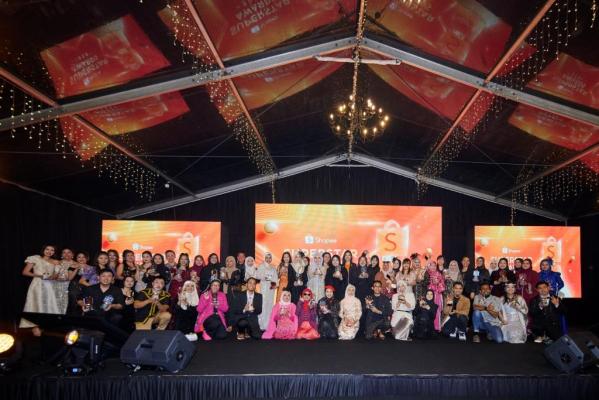
Kamis, 07 November 2024 | 12:05

Kamis, 07 November 2024 | 10:12

Kamis, 07 November 2024 | 10:11

Kamis, 07 November 2024 | 10:11

Kamis, 07 November 2024 | 10:10

Kamis, 07 November 2024 | 10:08

Kamis, 07 November 2024 | 10:08

Kamis, 07 November 2024 | 10:02



